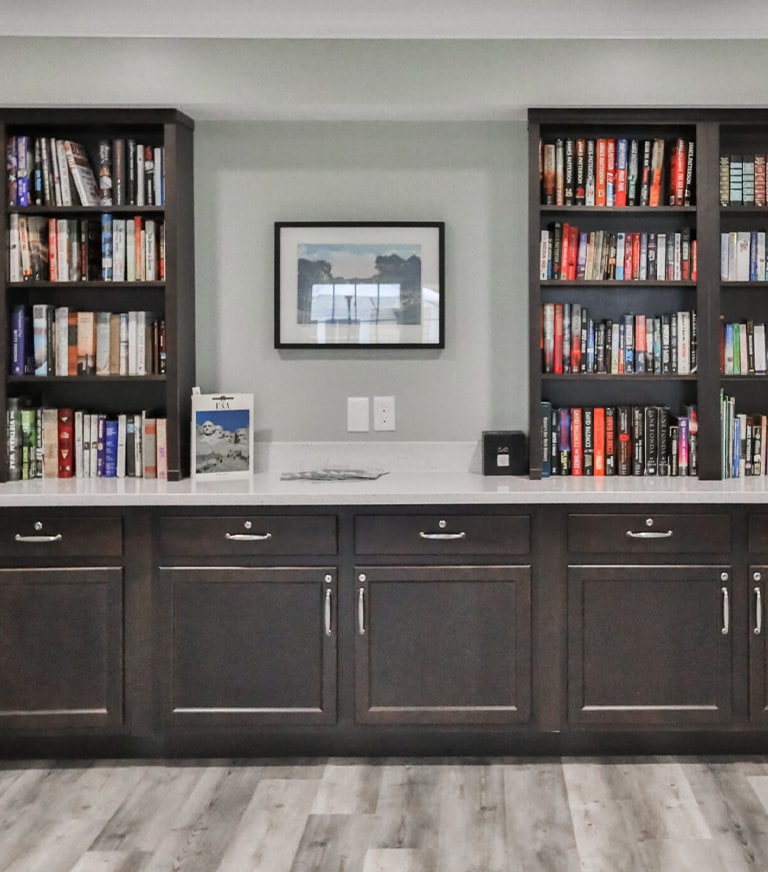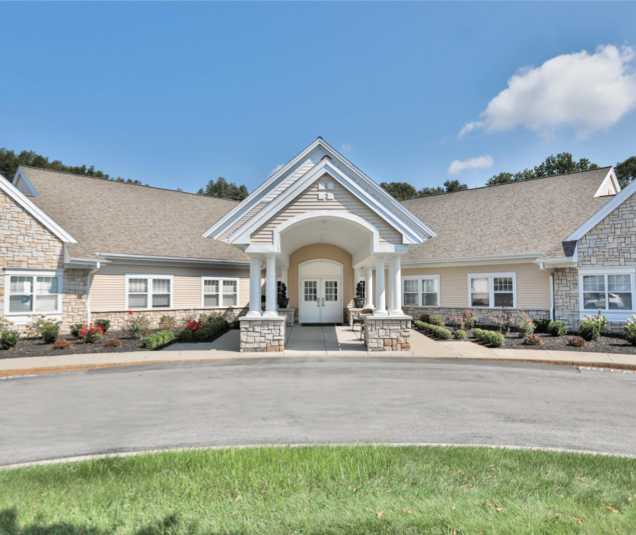When your parent begins to experience cognitive difficulties it can present a unique set of challenges. If your loved one is struggling to make sound decisions regarding their healthcare, finances, or other life areas, you might need to consider legal guardianship to promote their safety and well-being.
Getting guardianship of a parent with dementia depends on state law, but can include a court hearing. Always talk to a lawyer licensed in your state if you’re seeking guardianship.
What is Guardianship?
Guardianship, or conservatorship, is a legal process where a court appoints an individual to make decisions on behalf of another person who is unable to do so themselves. For dementia patients, this typically involves decisions related to health care, finances, and living arrangements. It is a significant responsibility, requiring a thorough understanding of your parent’s needs and the legal obligations involved.
Obtaining guardianship varies by state, but generally involves:
- Filing a petition in court
- Providing medical evidence of your parent’s incapacity
- Attending a court hearing where a judge will determine the necessity of guardianship
Consult with a legal professional to ensure you meet your jurisdiction’s specific requirements.
It’s occasionally confused with a power of attorney (POA), another way to act in someone else’s stead.
Power of Attorney Vs. Guardianship
While both POA and guardianship are mechanisms designed to help manage the affairs of someone who can no longer do so themselves, they differ significantly in their application and execution.
A POA is a legal document that grants 1 person the authority to act on another’s behalf, usually set up while the individual still possesses the mental capacity to make informed decisions. The POA can cover various areas, such as healthcare decisions, financial matters, or both, depending on how it is structured.
It’s generally more straightforward and less invasive than guardianship, allowing the designated individual to act in the best interests of their loved one with minimal court involvement.
In contrast, guardianship is a more comprehensive and often more complicated legal arrangement. It typically comes into play when an individual can no longer make sound decisions for themselves, and it requires court intervention to establish. The court not only appoints the guardian but also continues to oversee the guardianship to ensure that the guardian is fulfilling their responsibilities appropriately.
This process involves regular updates and may include court hearings to review the guardian’s actions. Because it implies a higher level of control over someone’s life, guardianship is generally seen as a more restrictive measure compared to a POA.
Who Can Be a Guardian?
Typically, a guardian is a close family member, such as an adult child, spouse, or sibling, who is deeply invested in the well-being of the person with dementia. However, if no suitable family member is available or willing, the court may appoint a professional guardian or a public guardian agency.
The chosen guardian should thoroughly understand the parent’s needs, and exhibit patience, empathy, and a commitment to acting in the best interest of the individual they are appointed to care for. An allegedly incapacitated person does have the right to object to the appointment of a guardian.

How the Court Determines Guardianship
The court plays a crucial role in determining the suitability of a potential guardian and this process can take time. During the guardianship proceedings, the court examines several key factors to ensure that the appointed guardian is the best possible choice.
The process may involve:
- Background checks: The court conducts comprehensive background checks on the prospective guardian. This includes reviewing their criminal record, financial history, and previous caregiver experience.
- Evidence of incapacitation: Medical evidence is crucial in the decision-making process. The court relies on detailed assessments from medical professionals to establish the extent of your parent’s cognitive decline and their ability to make informed decisions.
- Best interests of the parent: Ultimately, the court’s primary concern is the well-being of the person with dementia. They assess the potential guardian’s ability to meet the parent’s physical, emotional, and financial needs.
- Family dynamics: The court considers family relationships and dynamics to ensure that the chosen guardian has the support of other family members and is capable of maintaining a harmonious environment.
- Guardianship plan: The prospective guardian must provide a clear plan outlining how they intend to care for the parent, manage their affairs, and ensure their safety and well-being.
By carefully evaluating these factors, the court strives to appoint a guardian who will provide compassionate and competent care for the person with dementia, safeguarding their dignity and quality of life.
Challenges & Considerations of Guardianship
While guardianship’s primary goal should be to ensure your loved one’s well-being and safety, it’s crucial to be mindful of the various challenges you may encounter along the way. This process can involve:
- Legal complexity: The process can be legally complex, requiring detailed documentation and adherence to court procedures.
- Family disputes: Guardianship proceedings can sometimes lead to disputes among family members.
- Financial costs: Legal fees and court costs can add up, making the process financially burdensome.
Guardianship involves not only legal but also significant financial and emotional responsibilities. It’s essential to consider:
- Financial impact: Managing your parent’s finances and the associated costs.
- Emotional toll: The emotional strain of making decisions on behalf of a loved one.
Finding Peace in Planning: Taking the Next Steps
Securing guardianship for a parent with dementia is a complex, yet sometimes essential, step to supporting their well-being. Early planning and open communication can help ease this challenging process. Encourage your parent to create advanced directives, which outline their wishes for medical care and end-of-life decisions. These documents can provide clear guidance and reduce the need for guardianship.
At Clifton Park, we recognize the difficulties you face and are committed to supporting you at every step. For further assistance, consider scheduling a tour of our senior living community, and experience a compassionate environment for your loved one.
Remember, you’re not alone on this journey. Reach out to professionals and communities like ours to find the support and resources you need.











Dining at our community is about more than what’s on the plate—it’s about connection, community, and the joy of gathering together.
Our talented culinary team crafts meals that are both delicious and nutritious, offering flavors that comfort and inspire.
From themed dinners to chef demonstrations, each meal becomes an opportunity to savor the moment and celebrate life’s simple pleasures. 🍴
peregrinecliftonpark.com/ ... See MoreSee Less
0 CommentsComment on Facebook
Cheesecake Factory for lunch 🍰🍝 ... See MoreSee Less
0 CommentsComment on Facebook
Carmen and Joe joined us live again for another monthly Peregrine Birthday Party! ... See MoreSee Less
0 CommentsComment on Facebook
The March newsletter is here!
And monthly dinners are back starting with a bang thanks to Home of the Good Shepherd and DJ Mark Hersh. We will have a festive breakfast for St. Patrick's Day with Peregrine Senior Living at Clifton Park, and Saratoga County Department of Aging and Youth Services brings us new programs like Boxing Fitness and an additional Chair Yoga class!
Find the newsletter here: cliftonparkny.gov/document-center/clifton-park-senior-community-center/2026-newsletters/5845-marc...
Town of Clifton Park ... See MoreSee Less
0 CommentsComment on Facebook
Today we celebrate the caregivers—those whose quiet strength and unwavering compassion bring comfort to so many.
We see the difference caregivers make every day: holding a hand, sharing a smile, or offering reassurance when it’s needed most. 💕
Your dedication reminds us that true care goes beyond tasks—it’s an act of love, patience, and humanity.
Thank you for all you do to make the world a more compassionate place.
peregrinecliftonpark.com/ ... See MoreSee Less
0 CommentsComment on Facebook
We had some special visitors at our Mardi Gras Party yesterday🐷💜💚💛 ... See MoreSee Less
3 CommentsComment on Facebook
Happy Valentine’s Day! ❤️
Love takes many forms—between partners, friends, families, and even across generations.
Today we celebrate the love that fills our community: the care shared between residents and team members, the laughter that brightens our halls, and the sense of belonging that reminds us we’re never alone.
May your day be filled with connection, warmth, and heart.
peregrinecliftonpark.com/ ... See MoreSee Less
0 CommentsComment on Facebook